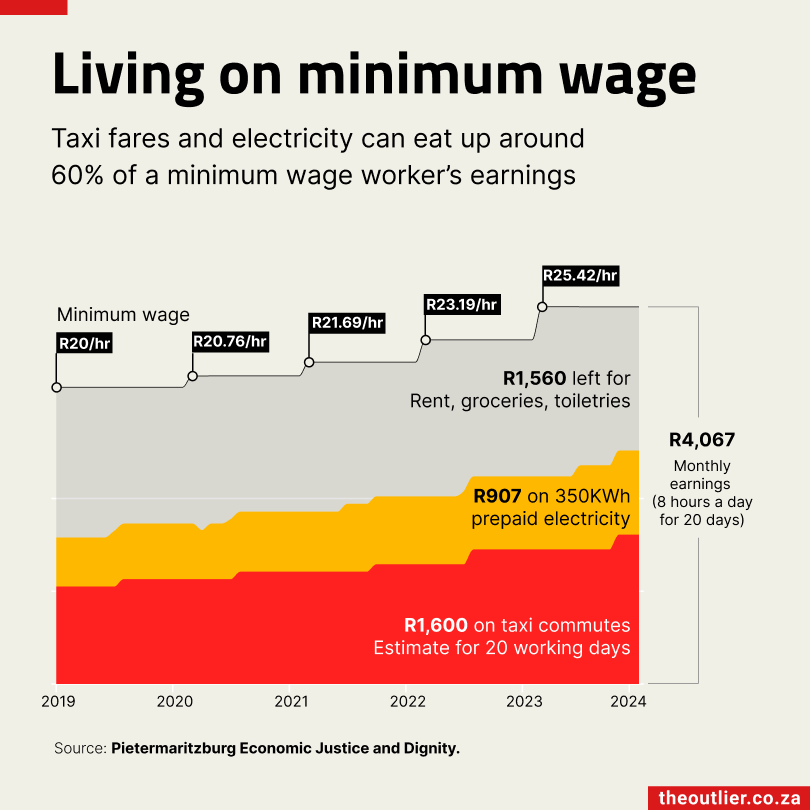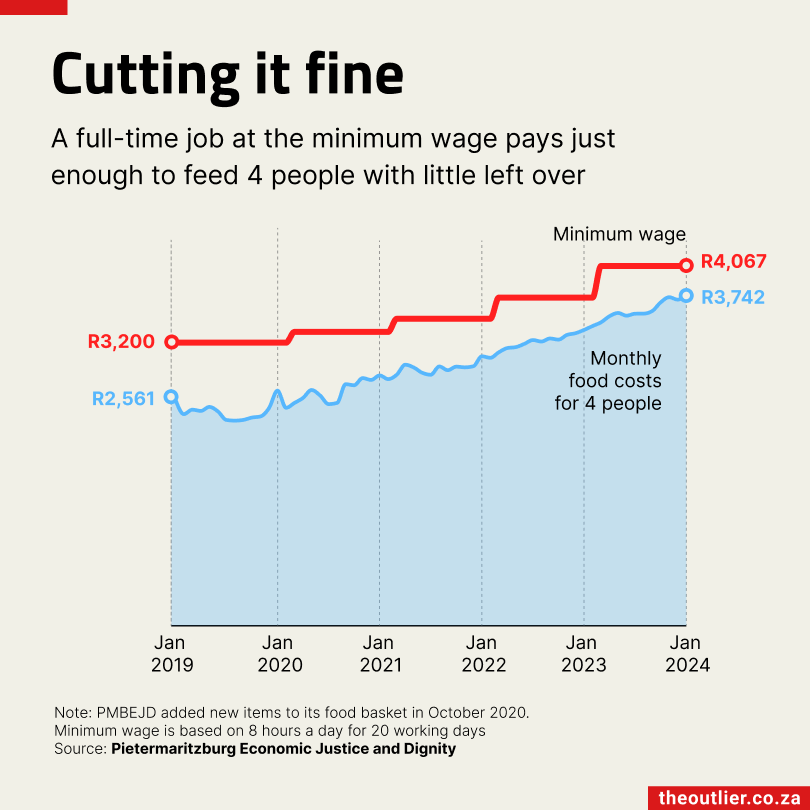R25.42/hour: Making ends meet on a minumum wage
Paying for basic services such as transport and electricity can swallow up 60% of a minimum wage, leaving about R1,560 for food and other expenses.
Photo: Unsplash
- South Africa’s minimum wage equates to about R4,000 a month
- Transport and electricity eat up two-thirds of a monthly wage
- The Pietermaritzburg Economic Justice & Dignity group estimates that a family of 4 needs to spend a minimum of R3,700 a month on food
The minimum wage in South Africa is R25.42 an hour. This equates to just over R4,000 a month for 20 days’ work. Last year it was R23.19 an hour.
It’s an amount that doesn’t go far in South Africa in 2024. Although conditions and costs vary around the country, the work done by the Pietermaritzburg Economic Justice & Dignity Group (PMBEJD) offers some insight into what it would take to live on a wage this meagre.
The bulk of a minimum wage could easily be swallowed up by basic services like transport and electricity, leaving very little for food, rent, schooling costs and so on, the PMBEJD’s data shows.
Taxi transport can easily cost R1,600 a month for someone travelling between their home and the nearest business district. This assumes they travel 5 days a week, and take two taxis in each direction. PMBEJD pins the cost per taxi trip at R20, or R80 a day. Statistics SA estimates a third of households have at least one person travelling by taxi daily.
After transport costs most households will spend on electricity. The PMBEJD collects prepaid electricity data from the Msunduzi Municipality and, in July 2023, the cost per kilowatt-hour of electricity increased from R2.25/kWh to R2.59/kWh. Typical usage is 350kWh a month, meaning many households spend about R900 a month on electricity.
Together, transport and electricity can amount to R2,507 a month, or more than 60% of a minimum wage.

This leaves around R1,560 for food and other expenses. It’s woefully short of what most families need to survive. Again the PMBEJD gives some idea of the problem. By its estimates, a family of four would have to spend, on average, R3,741 a month on food to sustain themselves.
The PMBEJD is a civil society organisation focusing on issues of ‘economic justice, the low-wage regime and on the increasing household affordability and food price crisis’. Women in low-income households track food and household items from 47 supermarkets and 32 butcheries. Items are chosen for their affordability.

Notebook
- Pietermaritzburg Economic Justice & Dignity Group (PMBEJD)
- Sign up to The Outlier newsletter for more data-driven insights
